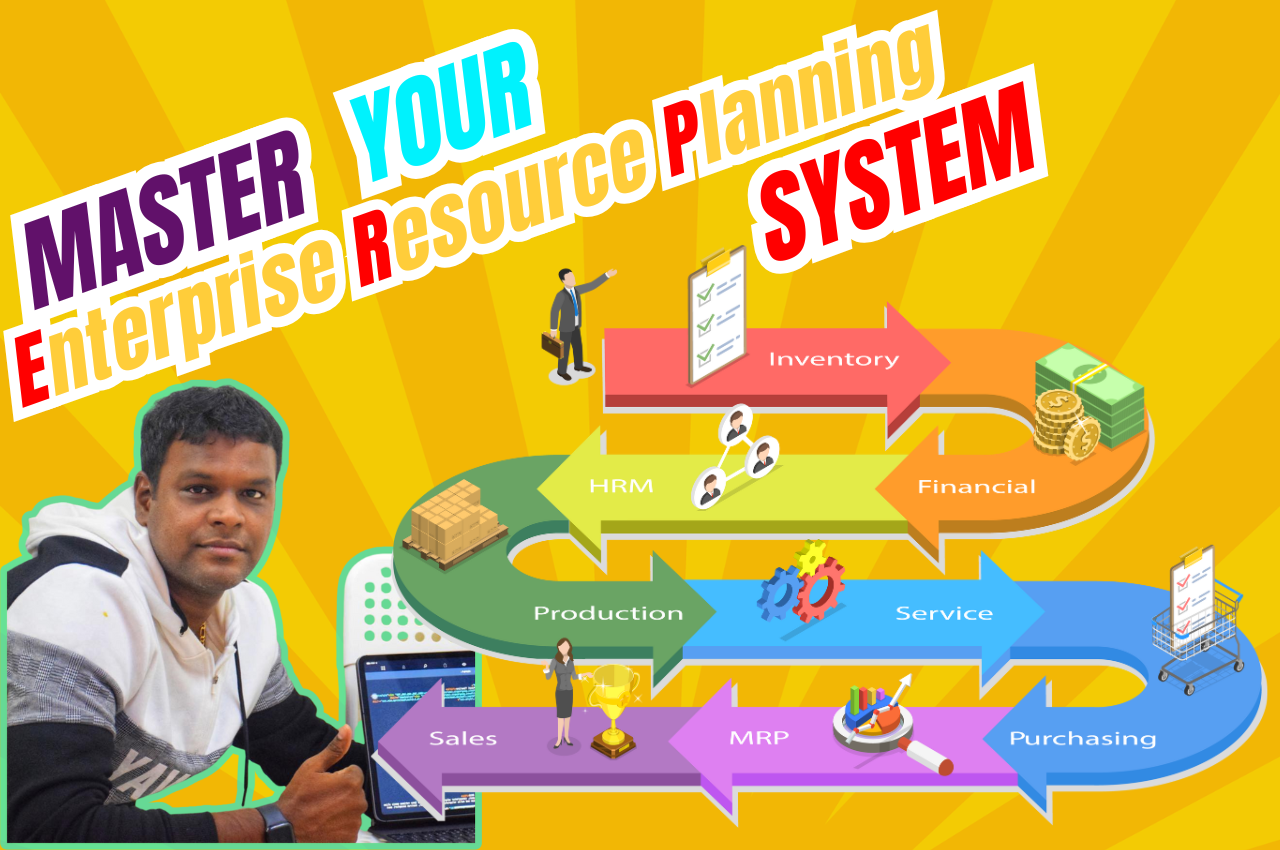The Journey into ERP
Life often takes unexpected turns, and one such twist came when my wife recently joined a company and began working on an ERP platform. It was a completely new domain for her, filled with complex systems, countless modules, and endless possibilities. Naturally, she had many questions—some straightforward, others deeply thought-provoking.
Our conversations at home became a mix of exploration and learning. Her curiosity sparked mine, and I found myself diving into the world of ERP to better understand the questions she asked. This journey wasn’t just about finding answers but about discovering how technology shapes businesses and improves processes.
Through this blog, I hope to share our experiences, simplify the concept of ERP, and perhaps even make it less daunting for those stepping into this intricate world for the first time. After all, learning is a team effort, and together, we grow stronger.
What is ERP?
Enterprise Resource Planning (ERP) is a comprehensive software system that integrates and automates various business operations. It connects financial and project management to supply chain operations and customer relationships.
ERP software systems are particularly valuable for manufacturers. They provide a unified platform to manage complex processes, from raw material procurement to final product delivery. By centralizing data and streamlining workflows, ERP enables real-time visibility into operations, empowering you to make informed decisions quickly.
How it is Works
ERP software operates on a simple yet powerful principle: integration. They bring together disparate business processes into a single, cohesive system.
Modern ERP Provides
- Centralized Database: All data is stored in one place, eliminating silos and ensuring everyone works with the same up-to-date information.
- Real-Time Updates: As data is entered or changed in one part of the system, it’s instantly reflected across all relevant departments.
- Process Automation: Routine tasks are automated, reducing manual errors and freeing up staff for more strategic work.
This interconnected approach is particularly beneficial in manufacturing, where complex supply chains and production processes demand precision and coordination.
In today’s fast-paced digital landscape, businesses are constantly seeking ways to streamline operations and enhance efficiency. One of the most effective strategies for achieving this is through the implementation of an Enterprise Resource Planning (ERP) system. However, choosing the right ERP solution can be a daunting task. Here are some expert tips to help you make the best decision for your end-to-end digital transformation.
- Understand Your Business Needs: Before diving into the selection process, it’s crucial to have a clear understanding of your business requirements. Identify the key areas where you need improvement and the specific functionalities you expect from an ERP system. This will help you narrow down your options and focus on solutions that align with your goals.
- Evaluate Scalability and Flexibility: Your business is likely to grow and evolve over time, so it’s important to choose an ERP solution that can scale with your needs. Look for systems that offer flexibility in terms of customization and integration with other tools. This will ensure that your ERP solution remains relevant and effective as your business expands.
- Consider User Experience: An ERP system will be used by various departments within your organization, so it’s essential to choose a solution that is user-friendly and intuitive. A complex system with a steep learning curve can lead to frustration and decreased productivity. Opt for an ERP solution that offers a seamless user experience and provides adequate training and support.
- Assess Vendor Reputation and Support: The reputation of the ERP vendor is a critical factor to consider. Research the vendor’s track record, customer reviews, and case studies to gauge their reliability and expertise. Additionally, ensure that the vendor offers robust support services, including technical assistance, regular updates, and a responsive customer service team.
- Analyze Total Cost of Ownership: While the initial cost of an ERP system is an important consideration, it’s equally important to analyze the total cost of ownership (TCO). This includes implementation costs, maintenance fees, and any additional expenses for customization and upgrades. A comprehensive understanding of the TCO will help you make a more informed decision and avoid unexpected financial burdens.
- Prioritize Data Security: Data security is a top priority for any business, especially when dealing with sensitive information. Ensure that the ERP solution you choose has robust security measures in place, including data encryption, access controls, and regular security audits. This will protect your business from potential data breaches and ensure compliance with industry regulations.
- Seek Input from Key Stakeholders: Involve key stakeholders from different departments in the decision-making process. Their insights and feedback will provide valuable perspectives on the specific needs and challenges of each department. This collaborative approach will help you choose an ERP solution that meets the diverse requirements of your entire organization.
- Test Before You Commit: Before finalizing your decision, request a demo or trial period to test the ERP system in a real-world scenario. This hands-on experience will allow you to evaluate the system’s performance, usability, and compatibility with your existing processes. It will also give you a better understanding of how the ERP solution can benefit your business.
Conclusion:
Choosing the right ERP solution is a critical step in your digital transformation journey. By understanding your business needs, evaluating scalability, considering user experience, assessing vendor reputation, analyzing costs, prioritizing data security, seeking stakeholder input, and testing the system, you can make an informed decision that will drive your business towards seamless digital transformation.
Embark on your ERP journey with confidence and unlock the full potential of your business with the right ERP solution! launch

